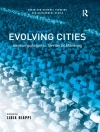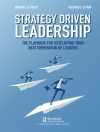Why is it some managers are so good at managing their teams and so good at managing individuals on their teams, yet productivity seems to lag below expectations?
The likely suspect … failure to proactively manage work processes.
Workplace productivity is the by-product of many factors, but the two most important of those factors may be people and processes. We often shower managers with resources to build their people management skills yet provide little in the way of building their process management skills.
This book is about balancing the scales and treating the efficacy of work processes as the natural counterpart to excellent people management.
With some thoughtful attention to the way our processes are constructed and some well-placed preventative and contingent measures, all of us, with the help of our teams, can thoughtfully manage process and improve team performance.
Prevention and Contingences: A Manager’s Guide to Process Management is your step-by-step manual for keeping your work processes tuned-up and operating at full capacity.
Mengenai Pengarang
Steve King is the retired executive director for the Center for Professional and Executive Development at the University of Wisconsin’s School of Business and the president of SDK Group, which specializes in helping organizations find solutions for their business-related talent-management issues.
Steve teaches at the University of Wisconsin–Madison, Northwestern University, and Morehouse College in Atlanta.
Steve spent more than twenty-five years leading in corporate settings. He was the senior vice president of Human Resources for Hewitt Associates, a global HR consulting and outsourcing firm. He also served as the vice president of global talent management for Baxter Healthcare; faculty leader for the Bank of Montreal’s Institute for Learning in Toronto; and vice president of management and professional development for Harris Bank in Chicago.
Steve lives in Madison, Wisconsin, and is the author of three other books on management: Brag, Worry, Wonder, Bet; Six Conversations; and Alignment, Process, Relationships.












